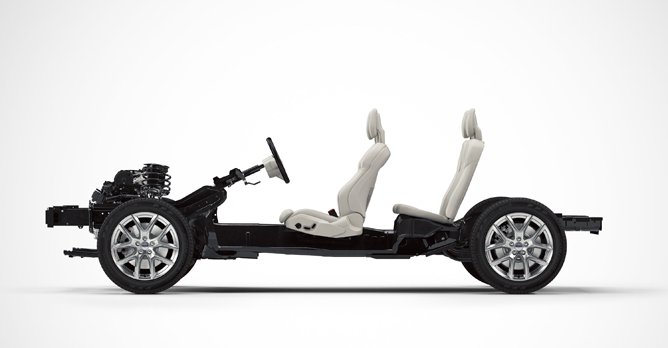Volvo sells over 600,000 vehicles on the CMA platform
07 Aug 2020|799 views
Volvo Car Group, including its strategic affiliates Lynk & Co and Polestar, produce vehicles based on the Compact Modular Architecture (CMA) platform, introduced in 2017. To this date more than 600,000 group vehicles based on the platform have been sold.
The CMA platform, co-developed by Volvo Cars and Zhejiang Geely Holding, is an excellent example of the joint development, production and procurement achieved since Geely's acquisition of Volvo Cars on 2 August 2010.
The platform debuted in 2017 with the hugely-popular Volvo XC40, and due to its modular design, was used to create the Lynk & Co 01, 02, 03 and 05, as well as the 2020 Polestar 2 and Volvo's first all-electric model, the XC40 Recharge. Deliveries of the new Polestar 2 will continue to drive sales on this successful platform.
Since the acquisition by Geely ten years ago, Volvo Cars has completely renewed its product portfolio of SUVs, estates and sedans, and became the first traditional carmaker to commit to all-out electrification, supported by the introduction of its Recharge range.
The range offers a plug-in hybrid option on all of Volvo car models, with the aim that by 2025, half of its global sales volume will consist of fully electric cars, with the rest hybrids. Over the past decade, Volvo Cars has transformed its business to become a truly global player in the automotive industry. It has grown its global sales from 449,255 in 2011 to over 700,000 in 2019, more than doubled its revenue from $20 billion in 2011 to $43 billion in 2019, and strengthened its operating profit from $252 million in 2011 to $2.25 billion in 2019.
Volvo Car Group, including its strategic affiliates Lynk & Co and Polestar, produce vehicles based on the Compact Modular Architecture (CMA) platform, introduced in 2017. To this date more than 600,000 group vehicles based on the platform have been sold.
The CMA platform, co-developed by Volvo Cars and Zhejiang Geely Holding, is an excellent example of the joint development, production and procurement achieved since Geely's acquisition of Volvo Cars on 2 August 2010.
The platform debuted in 2017 with the hugely-popular Volvo XC40, and due to its modular design, was used to create the Lynk & Co 01, 02, 03 and 05, as well as the 2020 Polestar 2 and Volvo's first all-electric model, the XC40 Recharge. Deliveries of the new Polestar 2 will continue to drive sales on this successful platform.
Since the acquisition by Geely ten years ago, Volvo Cars has completely renewed its product portfolio of SUVs, estates and sedans, and became the first traditional carmaker to commit to all-out electrification, supported by the introduction of its Recharge range.
The range offers a plug-in hybrid option on all of Volvo car models, with the aim that by 2025, half of its global sales volume will consist of fully electric cars, with the rest hybrids. Over the past decade, Volvo Cars has transformed its business to become a truly global player in the automotive industry. It has grown its global sales from 449,255 in 2011 to over 700,000 in 2019, more than doubled its revenue from $20 billion in 2011 to $43 billion in 2019, and strengthened its operating profit from $252 million in 2011 to $2.25 billion in 2019.
Latest COE Prices
October 2025 | 1st BIDDING
NEXT TENDER: 23 Oct 2025
CAT A$128,105
CAT B$141,000
CAT C$74,301
CAT E$140,009
View Full Results Thank You For Your Subscription.



















